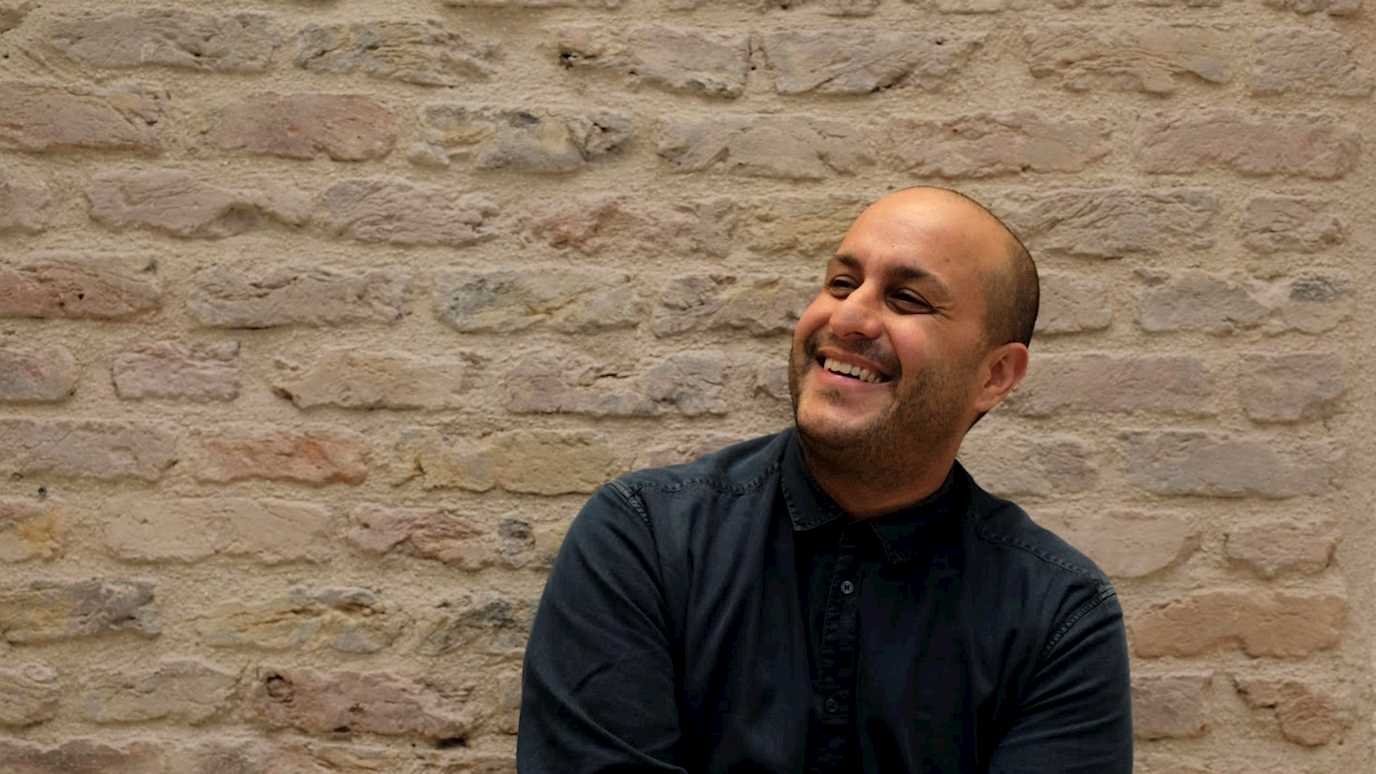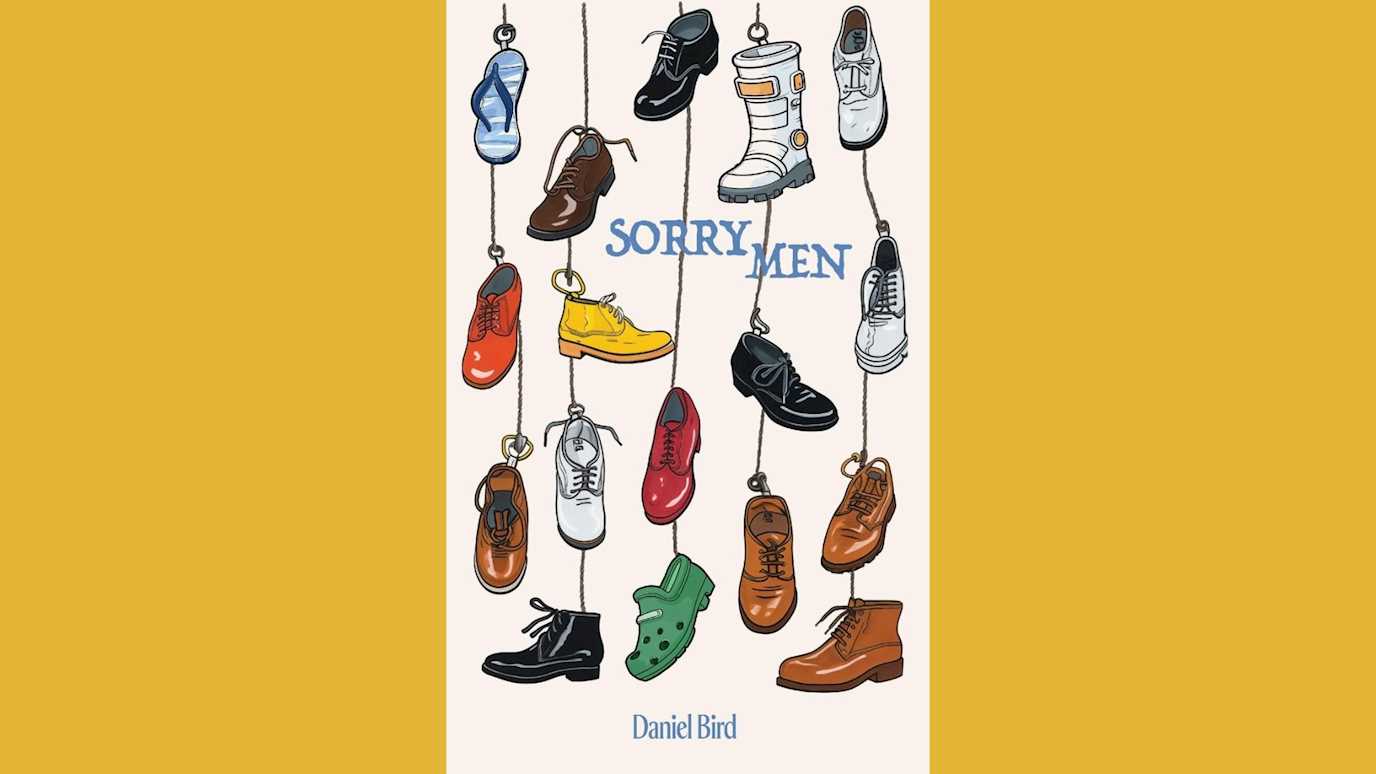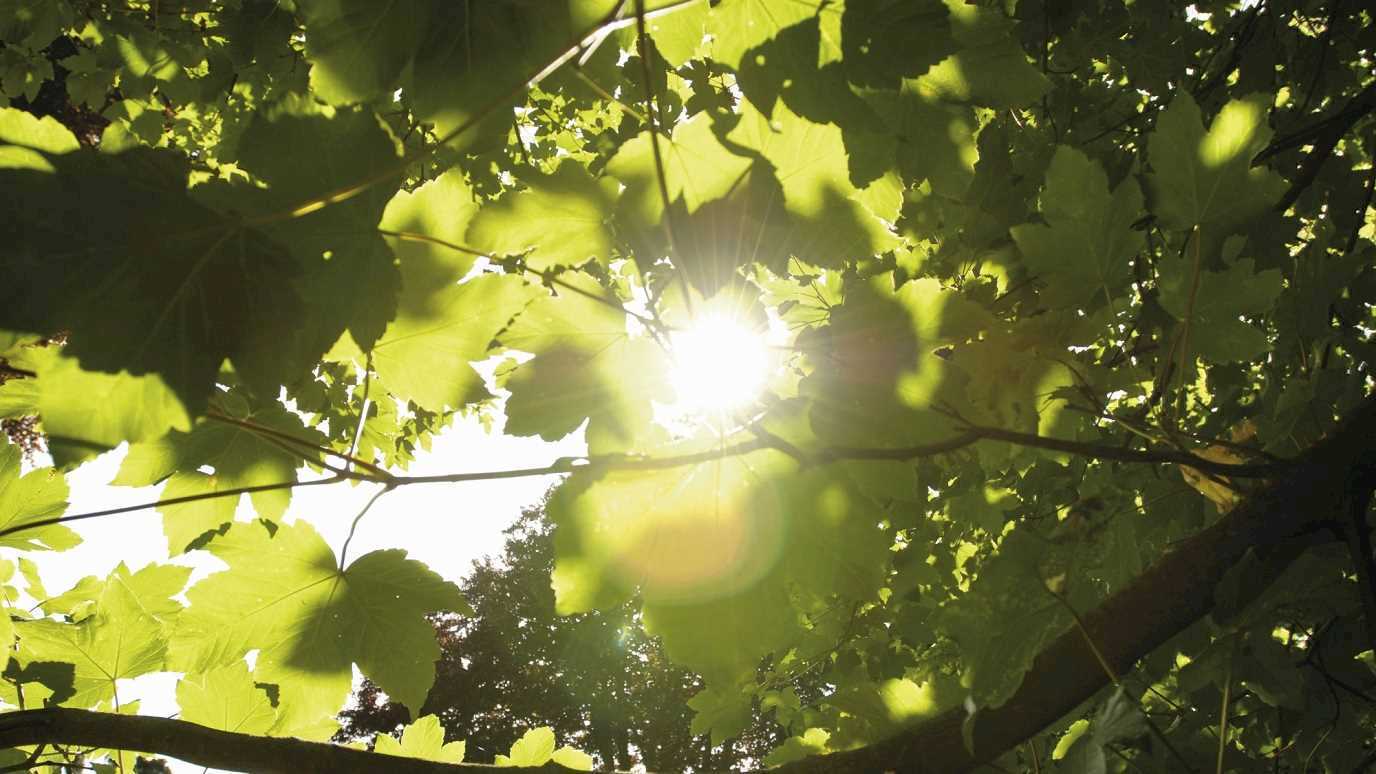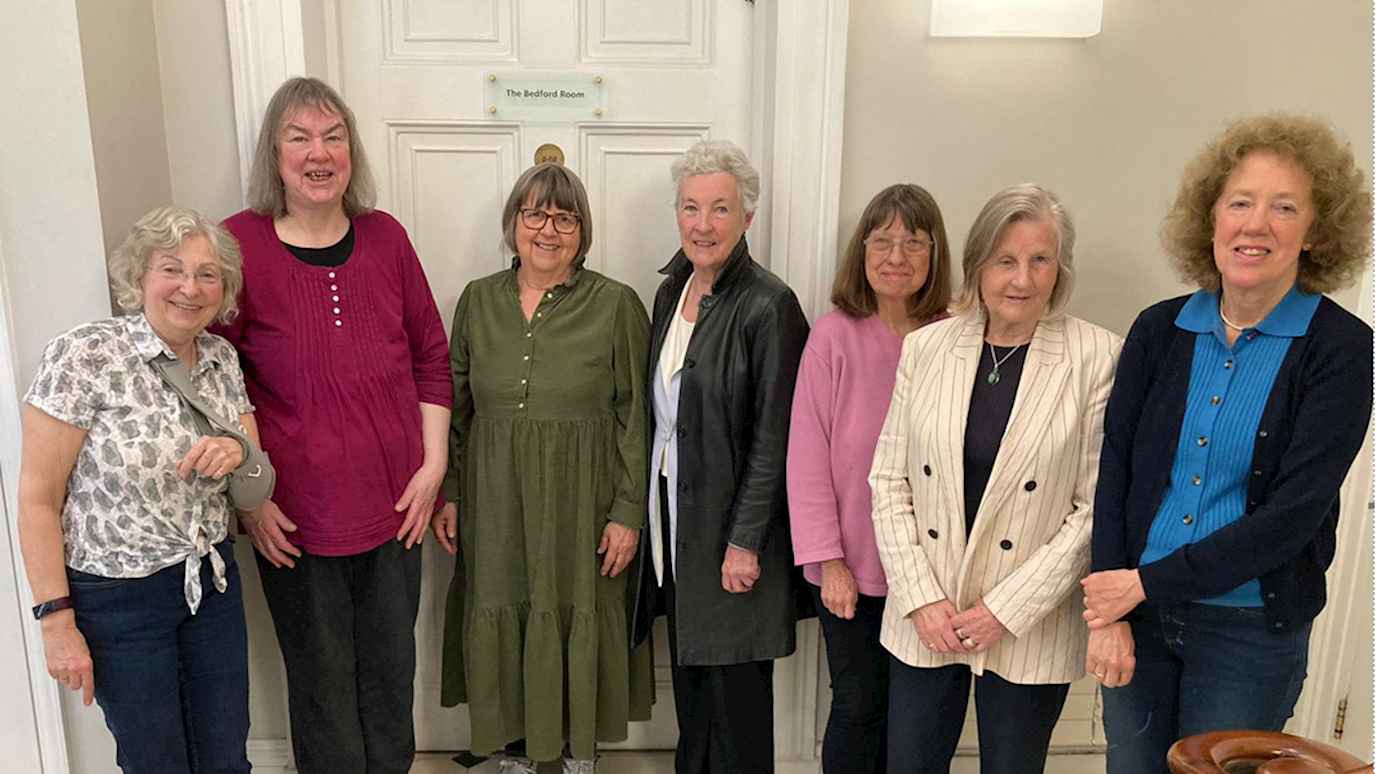Mahdi Fleifel (MA Feature Film Screenwriting, 2007) has recently had five of his films (A World Not Ours (2012), Xenos (2014) , A Man Returned (2016), A Drowning Man (2017), and 3 Logical Exits (2020) ) picked up by Netflix. We caught up with him to find out about his love of film, his time at Royal Holloway and his family’s excitement at being able to watch his films on Netflix.

A profile photo of Mahdi Fleifel
As someone who grew up watching 80s Hollywood blockbusters on VHS, Mahdi Fleifel knew from a young age that film was something he wanted to work in. ‘Film is storytelling, and storytelling was always a part of my life and my parents’ lives’, he tells us. He decided that he would pursue this goal straight after high school, doing his undergraduate degree in Film Production, his MA at Royal Holloway in Feature Film Screenwriting, followed by another MA at the National Film and Television School (NFTS).
This decidedly academic route to film making was inspired, Mahdi tells us, by Martin Scorsese ‘as he was the first great auteur to come out of a film school programme, many would have done internships at a production company and learnt on the job. I felt that this path was a way of preserving my own integrity and doing things my way by allowing me a space to explore on my own terms’
Whilst his first degree offered him experience in film making, Mahdi chose Royal Holloway as he knew he wanted to write a screenplay, ‘and wanted to study somewhere where I would be given support, time, encouragement and inspiration to write a feature film.’ He did in fact write his first ever feature film whilst on the programme, but says, ‘it wasn’t very good!’ Once Mahdi had applied for the programme, he was offered the David Lean Foundation Scholarship, which according to him made accepting his offer ‘a no brainer’.
Mahdi enjoyed his time studying at our Bedford Square campus, ‘it was my first time living in a big city, and I loved it’, he tells us. He particularly enjoyed meeting students from the around the world. The international nature of the cohort meant that he was able to get different views on film and what it meant to his fellow students. ‘It was a group of different nationalities, all with different stories who were able to come together and discuss their shared love of cinema’. Unsurprisingly, trips to the cinema are amongst Mahdi’s favourite memories of his time at Royal Holloway. ‘The Curzon Soho became a temple for me. As well as watching films, we spent so much time on the worn out couches, hanging out, having drinks and discussing films.’ Whilst he was a student at Royal Holloway, he was involved with the London-Palestine film festival which was held at the School of Oriental and African Studies (SOAS), next to the Bedford Square campus. According to Mahdi, ‘these experiences became part of the DNA of the stories I tell’
After graduating from NFTS, Mahdi set up Nakba Filmworks, and it is through this company that he creates and produces his films. The inspiration behind his work is creating first person accounts. ’My films talk about my history, my family’s history, being a Palestinian in exile, the whole Palestinian experience. My films feature my friends and members of my family. Many people understand what it’s like to have a cantankerous grandparent or a friend who is afraid to go to a demonstration. By sharing these stories, the hope is for people to connect to them on a personal level.’
His films have done well at international film festivals and in the art-house cinema scene, but he is thrilled about opening up to a whole new audience via Netflix. ‘Having the films streaming in people’s homes is really exciting’. His family it would seem, are equally excited! ‘I have never been bombarded with so many texts and calls from cousins, aunties and uncles than when they found out the films would be available on Netflix. Prior to this they would have not seen many of my films unless they were going to a film festival, or subscribing to niche cinephile streaming services.’ He hopes that the global reach of Netflix will open up his films to a wider audience, many of whom would not have had the chance to explore them previously.
Being a global citizen is one of the aspects of film making Mahdi enjoys the most. ‘Cinema means I can travel the world, it’s the greatest joy of my profession.’ During one eighteen month period, he went to over thirty counties. He has been inspired by film makers from all across the world, and has a global network of colleagues. ‘I’ve become a citizen of the world thanks to film. It’s a language that transcends all languages’
Mahdi is no stranger to accolades, his films have been nominated and won awards across the world. He says that his BAFTA nomination for A Drowning Man in 2018 meant a lot to him having spent so many years living and studying in the UK, where ‘he usually felt like an outsider’. However, none of these are as meaningful to him as audiences connecting with his work. ‘None of these achievements matter as much as getting a standing ovation for your film, or when after one screening, an elderly man came and gave me a hug and started crying. Those are the things that outlast everything else’.
Mahdi credits his time at Royal Holloway with helping him on his career path. ‘The academics on the course, especially Susan Rogers and Adam Ganz really supported and encouraged me. It meant a lot because it’s easy to meet people who don’t encourage you, especially in this field.’ For all aspiring filmmakers, he believes that Werner Herzog’s advice of ‘read, read, read’ is key. ‘Being exposed to literature and poetry has helped a great deal’, he says. He also cites the books by Phil Jackson (the coach of the LA Lakers basketball team) as source of inspiration. He tells budding filmmakers to be open minded and personal. ‘It is important to think about how you see the world. The personal films are the ones that speak to me the most, and those are the film makers that I look to. Dare to be vulnerable and fragile in your work.’
As for the future, Mahdi says he wants to carry on sharing as many stories as possible. ‘I just want to be as productive as possible, and keep looking for that film that only I can make and that is missing out there and carry on being a part of the mosaic of world cinema. And you know…..winning the Palme D’or wouldn’t be bad either.’
You can watch the following of Mahdi Fleifel’s films on Netflix:
- A World Not Ours (2012)
- Xenos (2014)
- A Man Returned (2016)
- A Drowning Man (2017)
- 3 Logical Exits (2020)
























